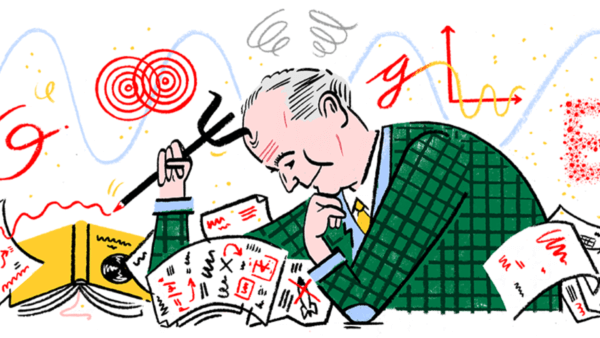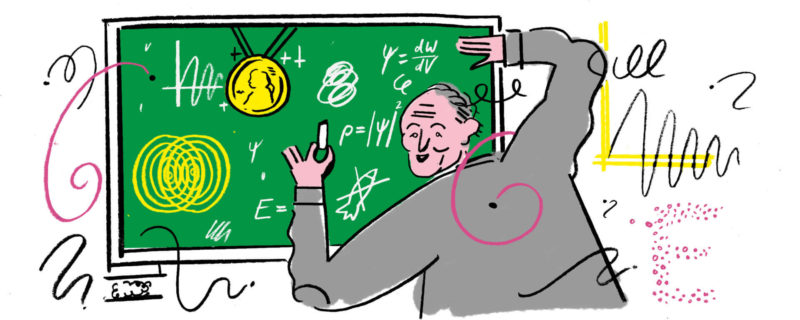Max Born Google doodle marks 135th birthday of man behind the Born Rule in quantum theory

Born was awarded the Nobel Prize in quantum mechanics for his theory, which serves as the foundation for nearly all quantum physics predictions.
For the second day in a row, Google is highlighting a Nobel Prize winner on its home page. Following yesterday’s Robert Koch doodle, today’s doodle marks the 135th birthday of German physicist and mathematician Max Born.
Born was awarded a Nobel Prize in 1954 for his research in the field of quantum physics that led to the Born Rule, a quantum physics theory used for predicting the location of wave particles based on mathematical probability.
From the Google Doodle Blog:
Previous theories proposed that wave equations were exact measurements, involving cumbersome physical measurement experiments. A gifted mathematician, Born discovered that matrices or “arrays of numbers by rows and columns” could yield a similar result, relying on predictions of probability. This revolutionary theory now provides the basis for practically all quantum physics predictions.
After earning his Ph.D. from Göttingen University, Born would go on to serve a theoretical physics professor at the same university. In 1933, he was forced to flee Nazi Germany and relocated to England, where he took a position with St. John’s College, and then at Scotland’s University of Edinburgh. Born remained in England for two decades and only returned to Göttingen after he retired.
Designed by guest artist Kati Szilagyi, the doodle leads to a search for “Max Born” and features the mathematician working through his quantum physics theories. Szilagyi also added a special wave-function detail within the image. (Hint: It’s the Psi symbol on the end of his red pen, and not the blue line squiggle through the Google letters. As an English major, I only know this after doing a search for “wave function symbol.”)

Google also shared some of Szilagyi’s early drafts for the Max Born doodle:



Google notes Born’s work in quantum mechanics — the area of physics focused on matter at its most granular level — led to many game-changing technologies, including personal computers, lasers and medical imaging devices.



